Nepal’s Health Care Workers Make Progress Amid COVID-19 Crisis, Despite Extraordinary Challenges
Urgent need for vaccines, immediate safety & long-term physical and mental health impacts are priority for emergency response & public health partners fighting to mitigate outbreak
Butwal, Nepal (July 7, 2021) — While emergency responders and communities in Nepal make progress in the fight to flatten the COVID-19 curve after a fatal surge, local health and global aid partners underscore the need for sustained support. After an escalation that began in April 2021 sounded international alarm, while neighboring India navigated its COVID-19 crisis, daily infection and fatality rates are significantly declining across provinces in Nepal. However, the immediate and lasting strain on the small Himalayan nation’s health system is at the center of attention as experts underscore the challenging road ahead to achieve stability, recovery and sustainability in regions lacking adequate health care access and resources.
Tom Cotter, director of emergency response and preparedness at Project HOPE, described the scene in Butwal, a city in the Lumbini province 240 kilometers west of Katmandu.
“What we’re seeing on the ground in Nepal is a painful example of how COVID-19 crises overwhelm already-stretched local health systems. In some regions, people only have one place to go for their health care needs, and when that one health hub is flooded with coronavirus patients, the total ability to support the health needs of a regional ecosystem undergoes extraordinary strain. Fortunately, the Nepali people are strong and most resilient, and they are making immense strides despite extraordinarily challenging conditions.” Cotter arrived in Katmandu on June 24 and traveled to Butwal and surrounding communities in Lumbini Province to support local health leaders and address health system needs, including trainings for health care workers and deliveries of PPE, oxygen tanks and oxygen concentrators.
“However, with minimal to no vaccine access in the region, the potential for recovery from this recent COVID-19 spike and protection from possible next waves remains cause for high concern. The global community must come together to address how to make vaccines accessible for the Nepali people,” Cotter urged.
In Lumbini, one provincial hospital is the source of key health care for numerous remote rural communities in a region of rugged and dynamic Himalayan geographies. Ambulances and people create a scene of urgency at the busy provincial hospital, which serves as the only source of various types of health care for the community of Butwal and surrounding remote districts of Nepal. Hard-hit by a second coronavirus wave, exacerbated by the highly contagious Delta variant, the hospital is the hub for treating acute COVID-19 cases.
Dr. Nabin Darnal, superintendent of Lumbini province hospital, described the rigor with which local health workers have been addressing the COVID-19 crisis while upholding duties to deliver all other general care to patients in a region heavily dependent on one source of health care for general and internal medicine needs ranging from orthopedic surgeries to maternal health, child deliveries and pediatric care.
“Our frontliners are working in this remote area 24 hours a day to help people with COVID-19. As well, we are not stopping other services. We are side-by-side conducting general services and COVID-19 services,” said Dr. Darnal.
In addition to the challenges of the pandemic and resource constraints, Dr. Darnal describes the difficult geography and conditions impacting health care workers and patients in the region. “Transports are obstructed during the rainy season. People have to come from very far places by walking. There are many landslides in the rainy seasons. When we have to refer people from one [health care] district to another, it takes three to four hours to transport them.”
Local Community Leaders Make Progress with National & International Allies
Relief efforts are centering on health systems and health workers’ support needs in addition to patient and public health priorities. In collaboration with the Ministry of Health & Population, Project HOPE and Pratiman Neema Memorial Foundation are focused on addressing urgent and long-term needs. Collaboration between local health leaders, national health authorities and international aid groups is making progress.
Trainings Empower Frontline Health Workers Through COVID-19 Conditions
Frontline health workers in Nepal have faced dangerous and strenuous conditions, as consistent across COVID-19 emergency zones internationally. Efforts to protect their safety and inform public health emergency response approaches have included trainings specifically focused on the virus and vaccines. COVID-19 acute care trainings at Nepali hospitals have prepared more than 770 Nepali health workers to protect their health and communities.
To support local health workers internationally through the extraordinary conditions, global health and international emergency response partners are providing resources that empower health workers to protect themselves while striving to save lives and support community health. Trainings for frontline health workers, made accessible through language translations and online versions, have emerged as a potent tool in changing the course of the COVID-19 crisis. In June 2020, in collaboration with Brown University, Project HOPE launched COVID-19 Acute Care trainings for health care workers. The trainings have now reached more than 100,000 health workers, including in Nepal. In addition to live trainings, online trainings were developed to dramatically expand reach and accessibility. Dr. Darnal described participating in COVID-19 trainings for health workers.
“Many of us have taken the training from Project HOPE and Pratiman Neema Memorial Foundation,” Dr. Darnal noted, citing the value of the online option, as well as the multiplier effect of the train-the-trainer model at the center of the program. “We got so many advantages. This helps us train others, and then they train other people.”
Subsequently, COVID-19 Vaccine Literacy trainings were launched in April 2021 to address vaccine science and hesitancy needs. With the added mental health toll a top concern, in May, Project HOPE launched a Mental Health & Resiliency Training program for health care workers with plans to reach 20 countries, including Nepal.
Local health officials and international emergency response partners are dually focused on the immediate continued needs of the Nepali people and potential long-term impacts resulting from the national public health emergency, including its effect on strained health systems.
“Protecting frontline health workers has been paramount throughout the pandemic,” Cotter added. “Here in Nepal, having skilled, trained health workers in place who are knowledgeable about the risks and best practices of COVID-19 acute care has enabled health workers to protect and save others’ lives while protecting themselves.”
###
Facts & Figures
Data as of July 6, 2021 (Source: WHO Country Office for Nepal)
- 9,263 deaths due to coronavirus in Nepal
- 648,085 confirmed cases
- 3,275,849 RT-PCR tests
Project HOPE’s Response in Nepal
- Project HOPE has trained 771 frontline health care workers in COVID-19 Acute Care, with additional trainings planned over the coming weeks.
- Project HOPE has worked with partners to procure and distribute 100 oxygen tanks, 84 oxygen concentrators, as well as hospital beds and temporary hospital tents.
- 8,000 units of PPE have been distributed. An airlift of 80 pallets of PPE and hospital beds is being scheduled.
Multimedia Resources:
- Images
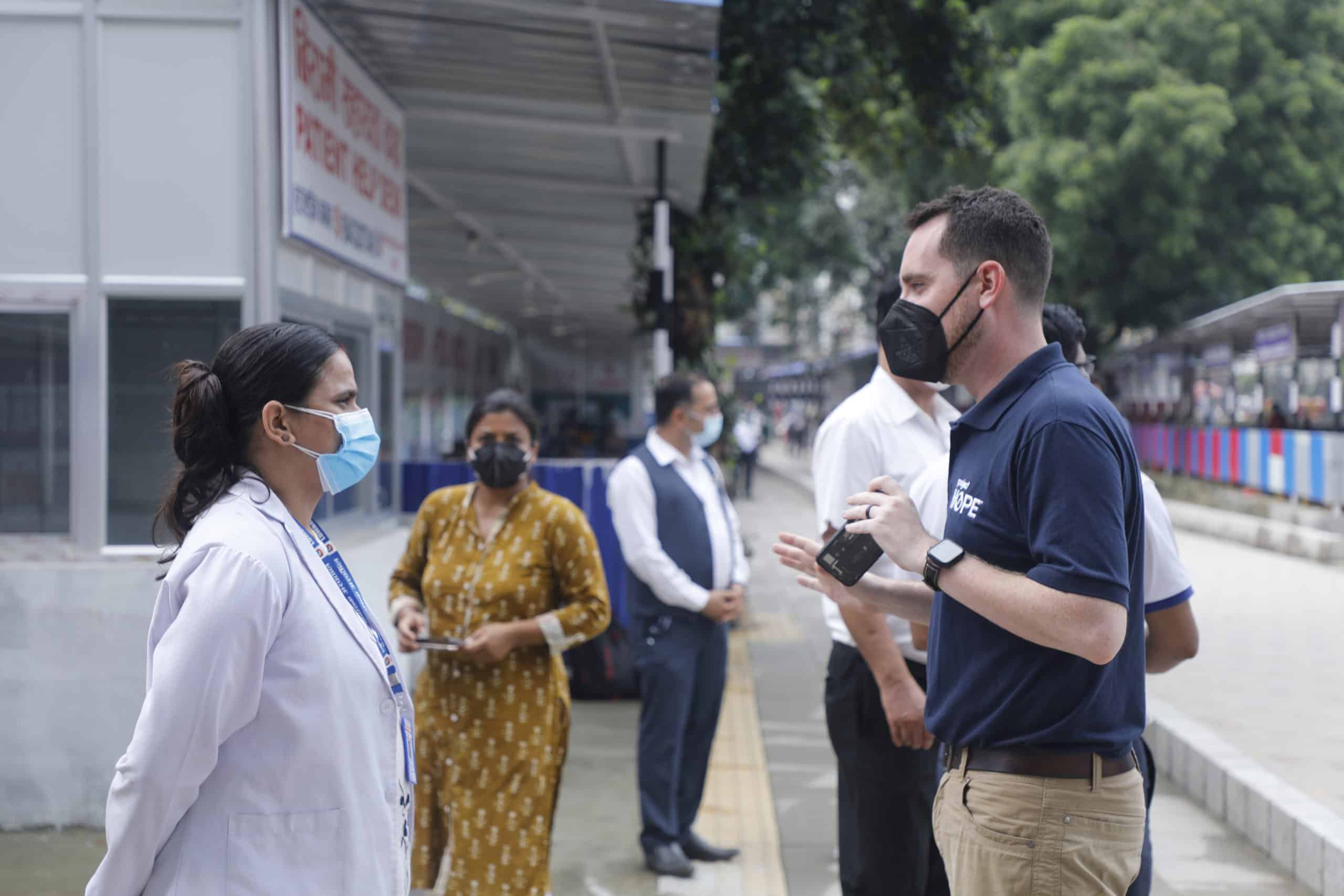
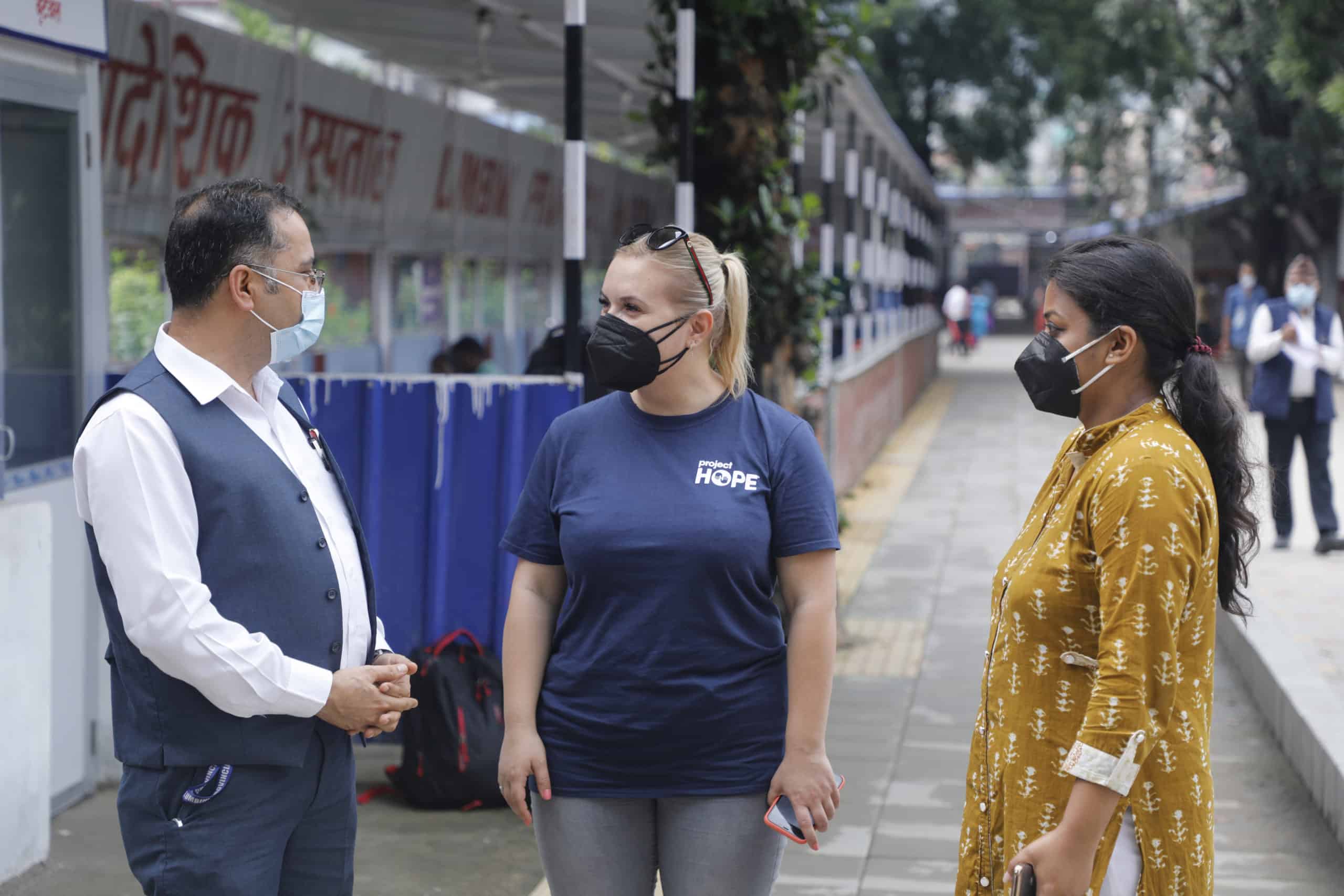
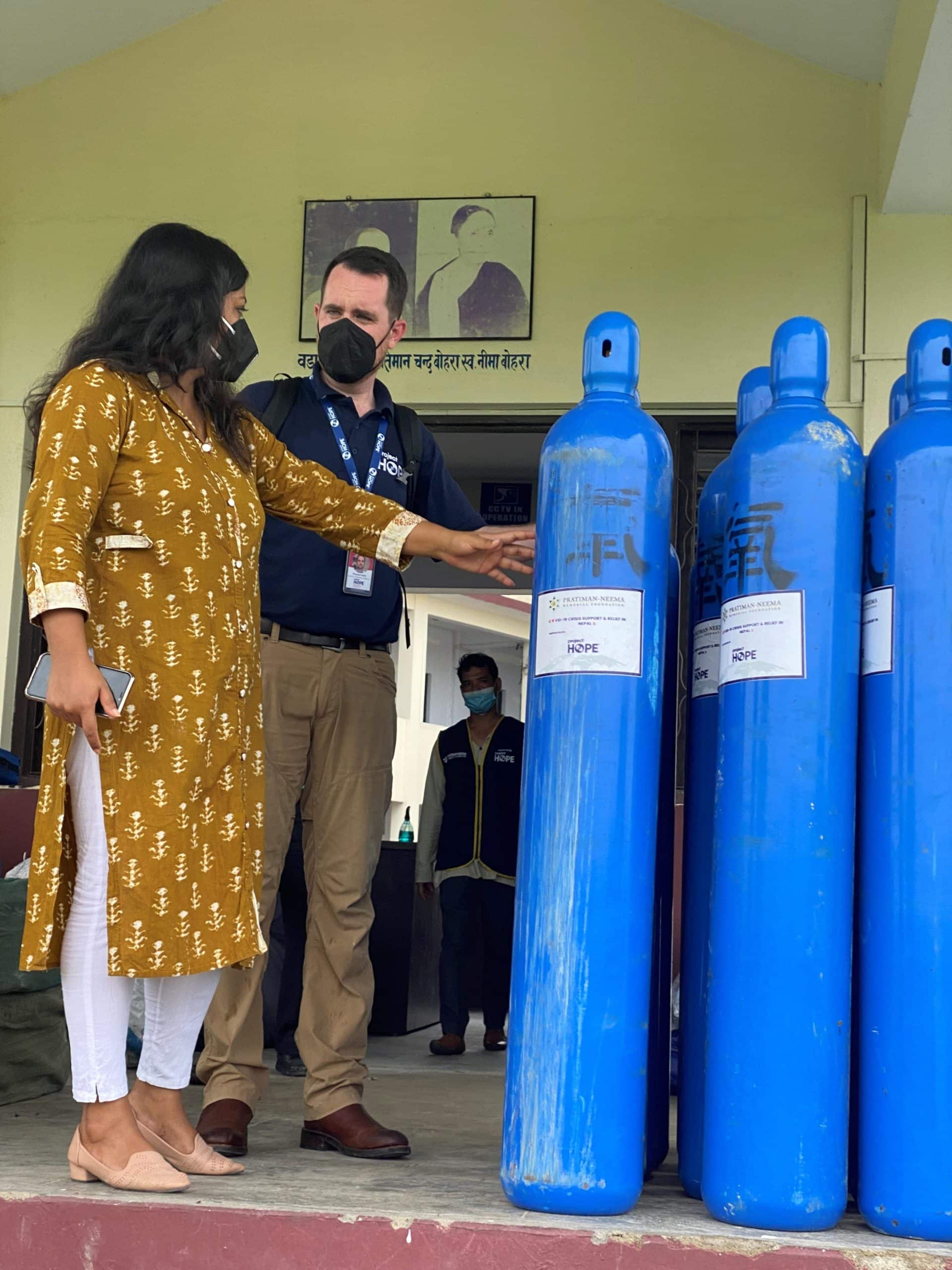
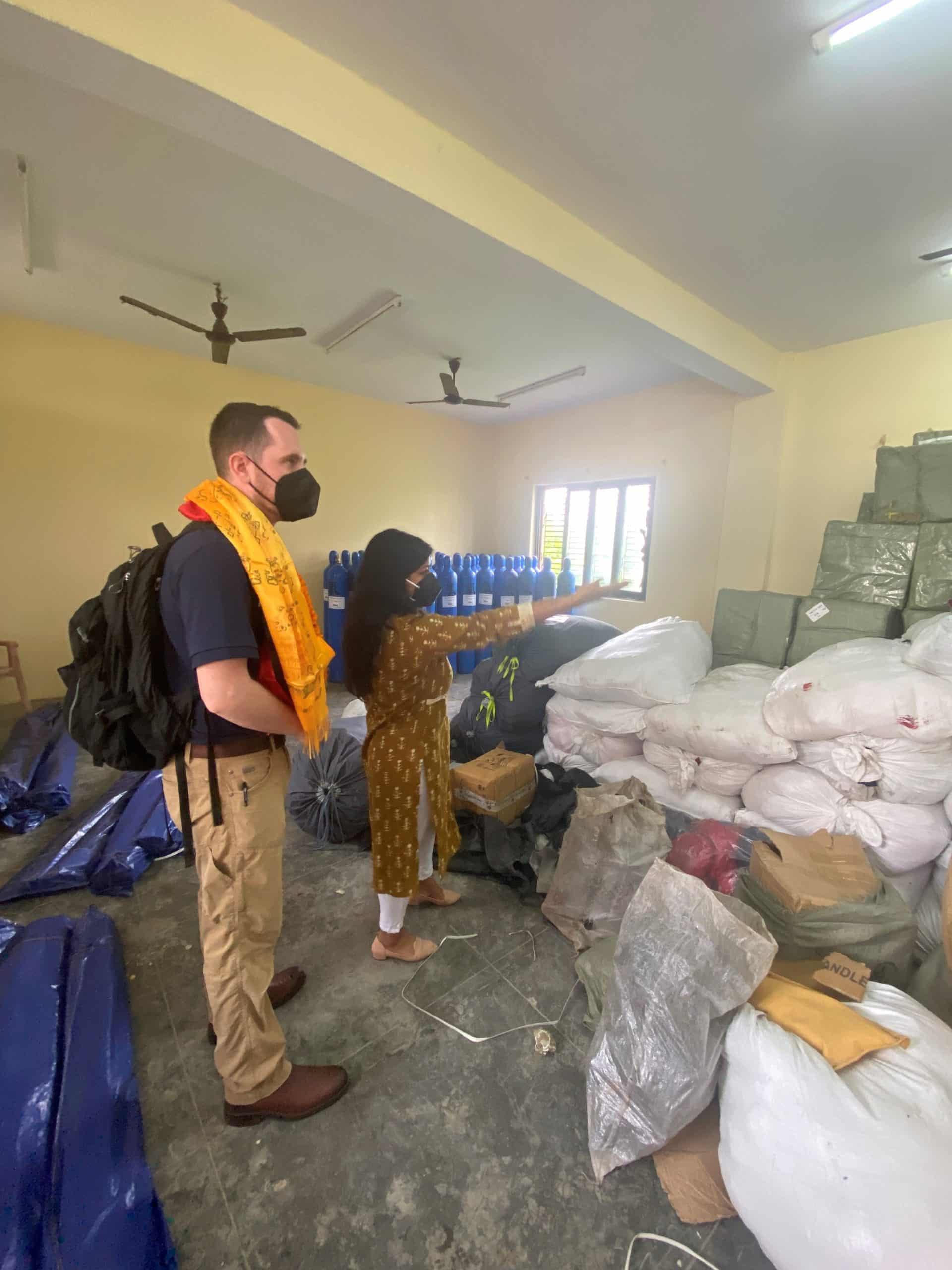
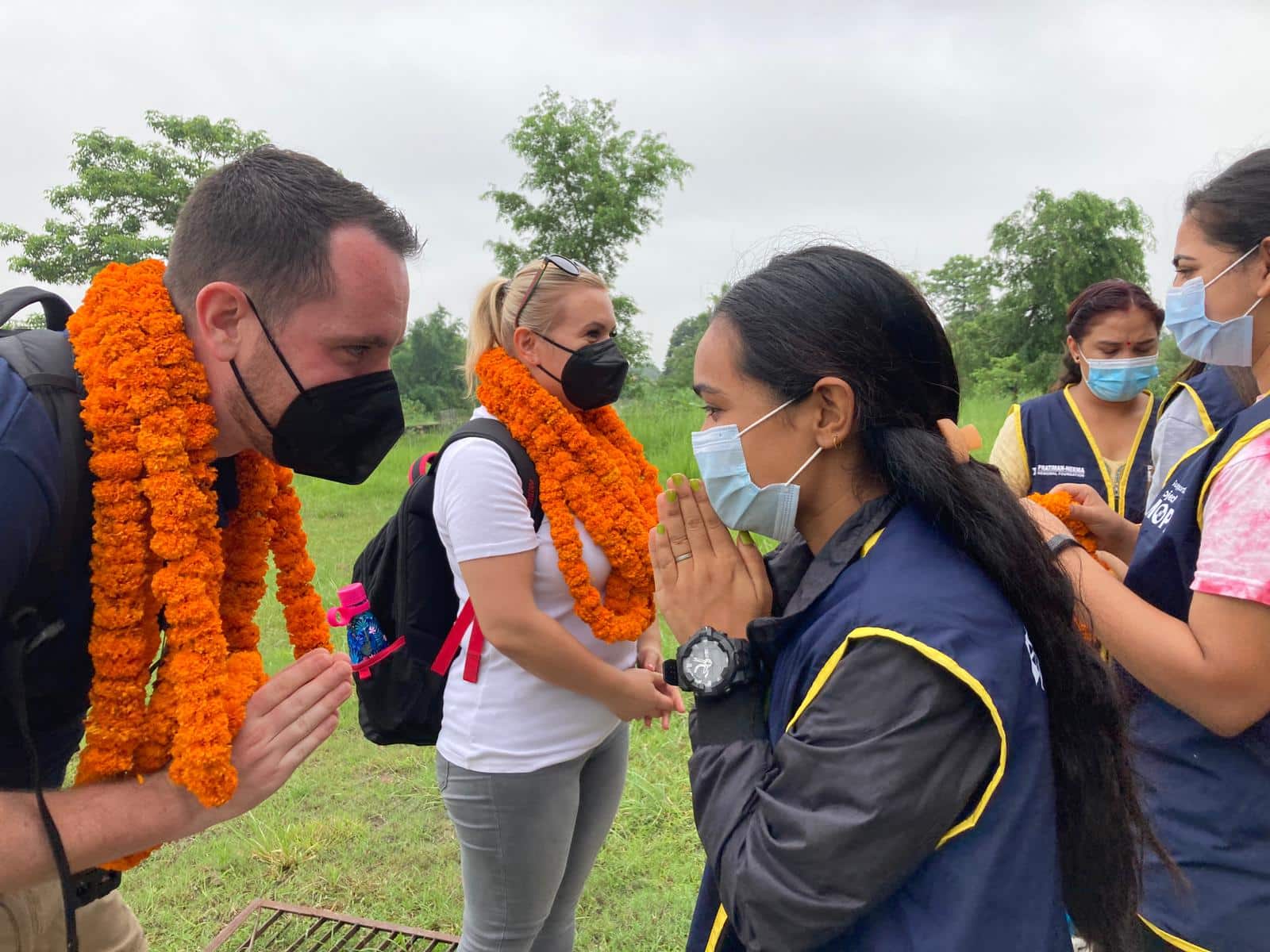
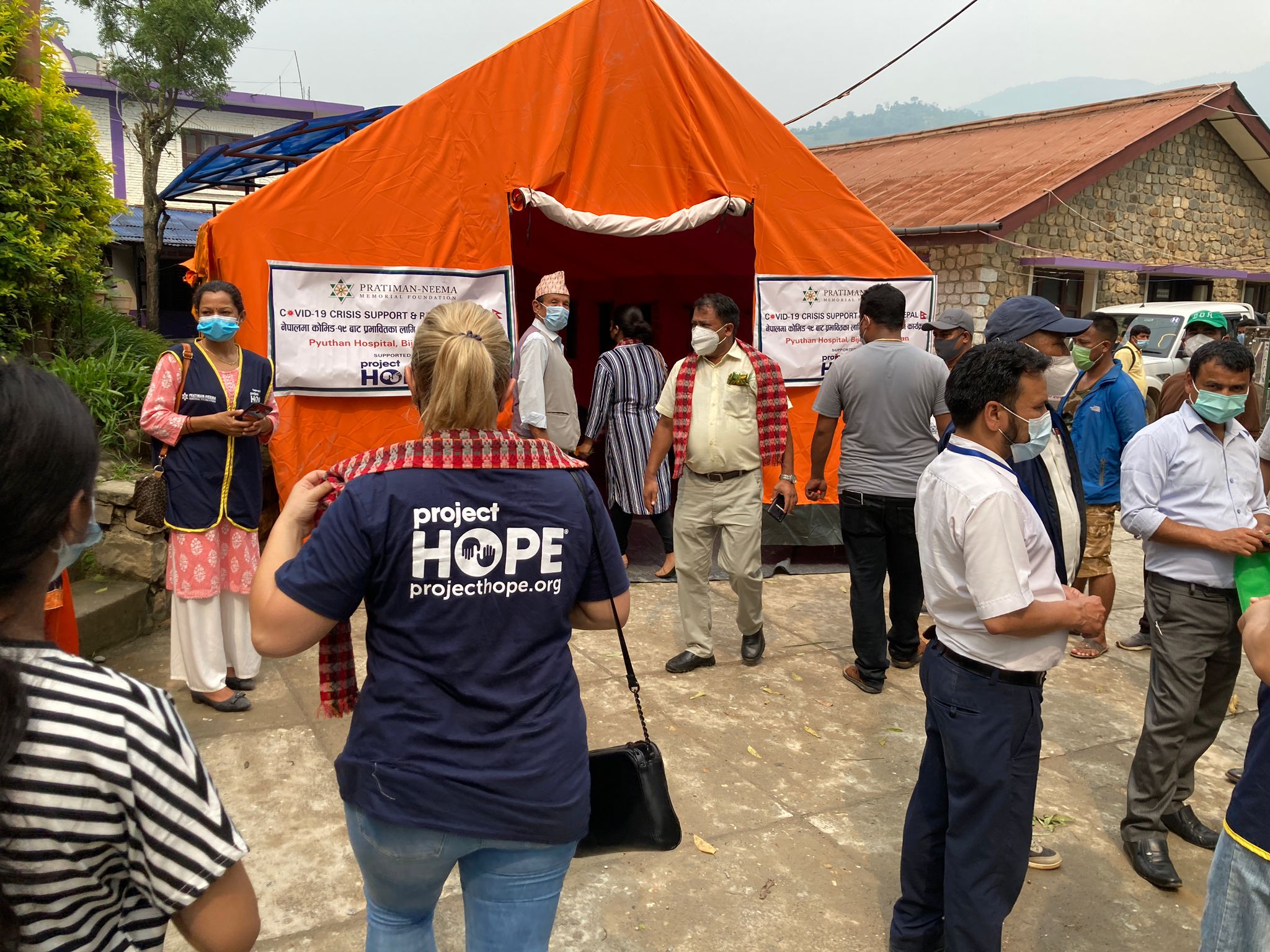
- Videos
Pratiman Neema Memorial Foundation’s Executive Director Ms. Swati Thapa discusses the COVID-19 situation in Nepal. Credit: Project HOPE.
Related Recent News:
- Delta Variant Surges, COVID-19 Pandemic Far from Over, Dr. Tom Kenyon Warns
- Project HOPE Expands Mental Health & Resiliency Trainings for Health Workers Globally
- Project HOPE Offers Support to India’s COVID-19 Second Wave
About Project HOPE
With the mission to place power in the hands of local health workers to save lives around the world, Project HOPE is a global health and humanitarian organization operating in more than 25 countries. Founded in 1958, we work side-by-side with local health systems to improve health and support community resilience. We work at the epicenter of today’s greatest health challenges, including infectious and chronic diseases; disasters and health crises; maternal, neonatal and child health; pandemic preparedness and response; mental health for health workers; and the policies that impact how health care is delivered. For more information, visit www.ProjectHOPE.org and follow us on Twitter @ProjectHOPEorg.